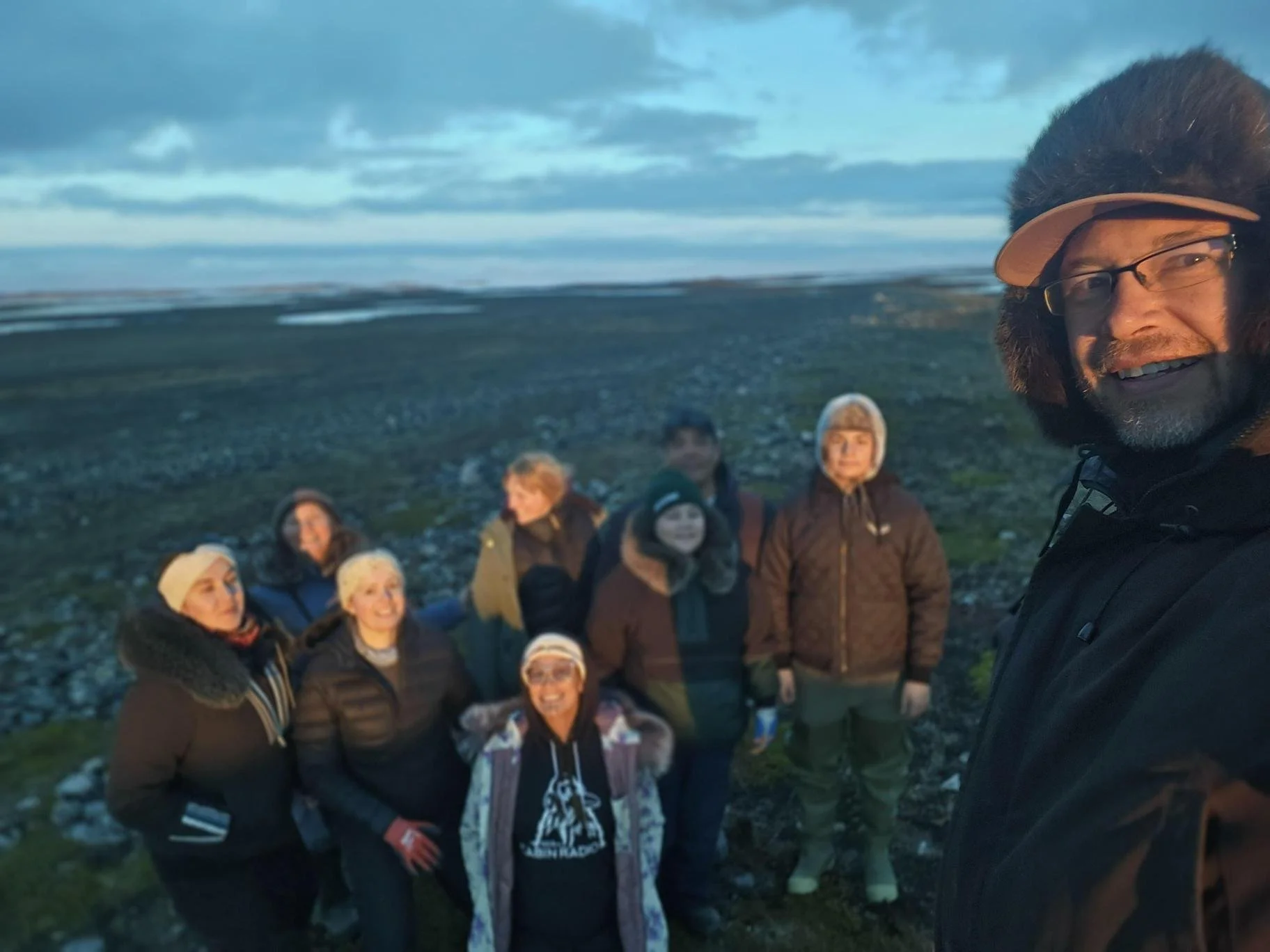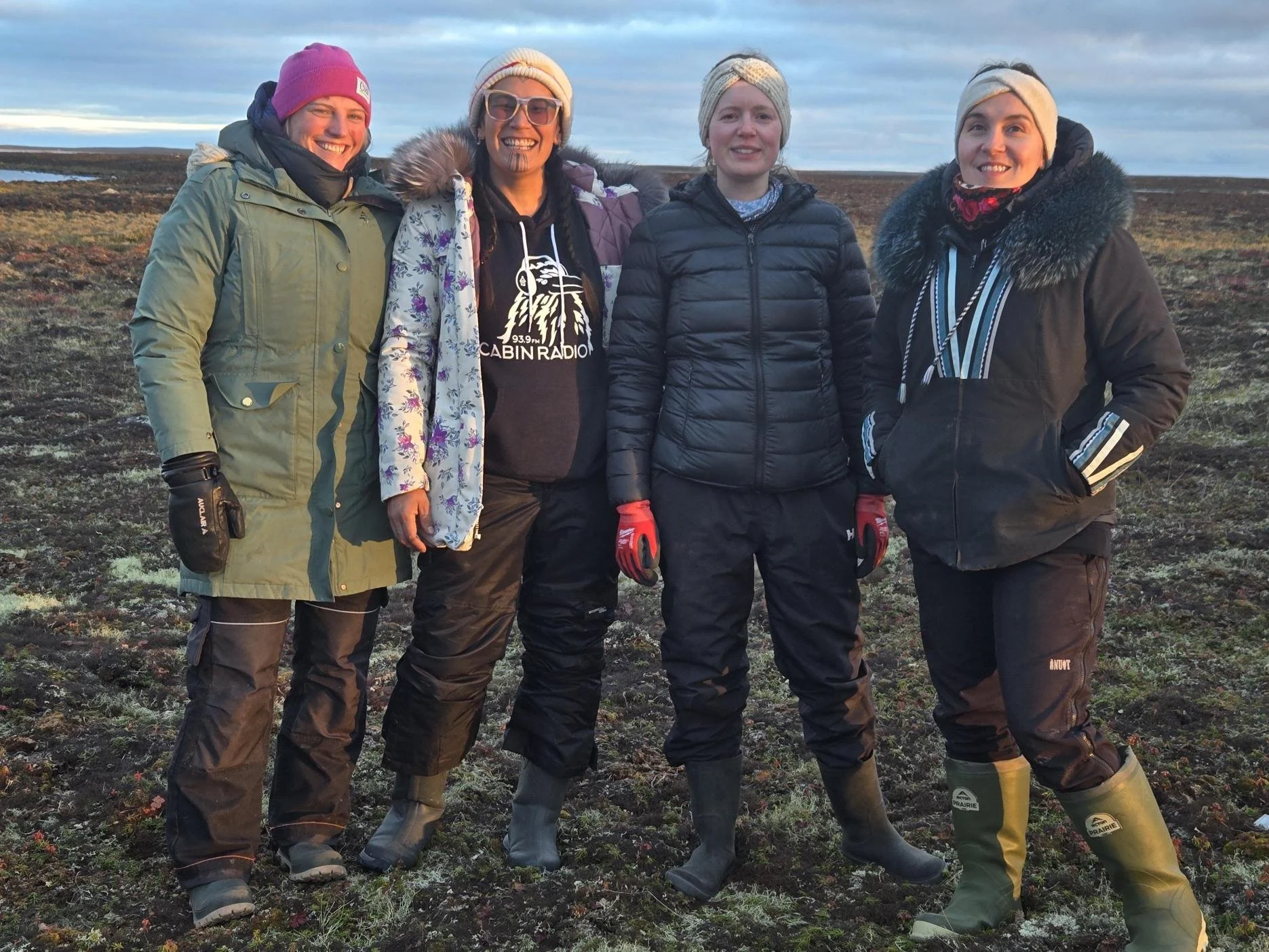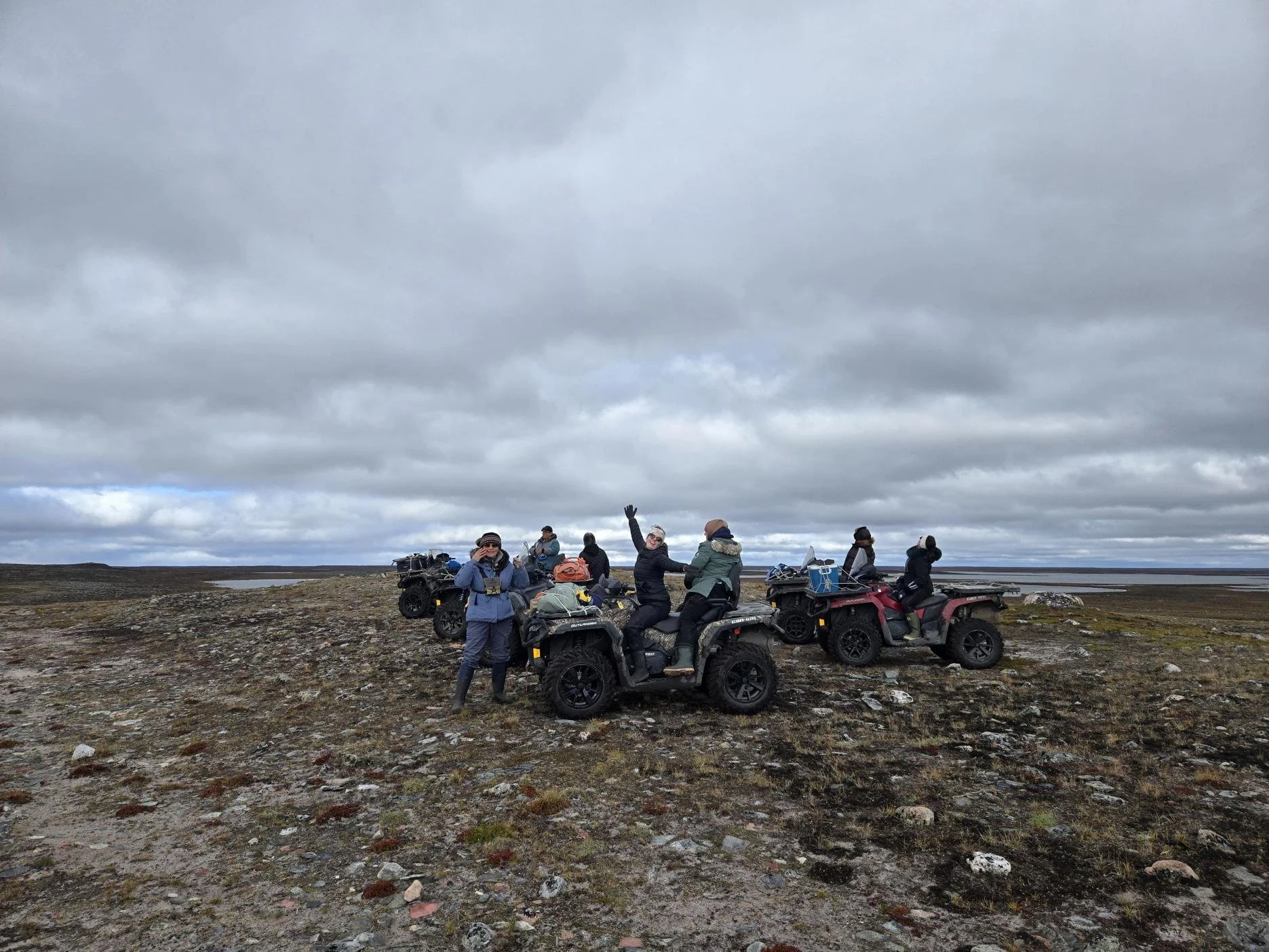Stephen Ellis
… is supporting Northern communities in building economic pathways that sustain people, land and water.
“I work in the territories North of 60 and the people of this place,” says Stephen Ellis, Northern Program Lead at MakeWay. “People are feeling the impacts of climate change now and need relief. The economic pathway that's being provided to Northern Indigenous peoples is: look at your rich mineral base and all your forests and all these natural resources: your pathway to prosperity is in exploiting these resources. So park your cultural values, jump on board with our market industrial economies, and all will be well. One of the biggest questions in the north is: what are opportunities for sustainable livelihoods that don't exacerbate climate change?”
The Northern Programs at MakeWay are designed to answer that question, with initiatives that develop leadership capacity in the North; advance land and water stewardship by local communities; create sustainable livelihoods; and activate Indigenous cultural resurgence. Practically, that means projects like:
building out the “enabling conditions” for community-led Indigenous Protected and Conserved Areas; the crucial early-stage development of this work is often underfunded, as donors prefer coming in at the end, when the projects are already on track;
creating a “country food distribution system” to ensure traditional foods like caribou and seal are still able to reach communities that are struggling to hunt them due to climate impacts, and supporting local hunters in the process;
working with governments to develop publicly-funded “full-time hunter programs,” formally recognizing their mentorship, environmental observation, and food security benefits, and that these roles as much benefit to Northern life as office workers;
developing peer supports for local leaders, including burnout prevention and cohort development with local colleagues.
MakeWay advances much of this work through collaborative funding models, like the North West Territories On the Land collaborative. Says Ellis: “The power of many is crucial. Instead of starting new projects from the ground up, partner with these existing, Indigenous-led initiatives. It’s the best way to get money into communities and to access valuable partners who can share knowledge and learn from each other.”
The wicked challenge facing Northern communities:
“Can we build out economies that are built in local aspiration, and provide people with a choice that's beyond ‘Your only pathway out of poverty is to actually ruin your way of life?’ Right now, the economic choice that people are being presented with is: poverty, or mine and cut it down.”
Photo Credit: Stephen Ellis
On moving beyond the extraction economy:
“People have scratched the surface of this, looked at tourism, looked at conservation economies, looked at sustainable fisheries — and probably it's a blend of all these things – but nobody's really done a serious investment in this work. Because the model in the North, and really in Canada, is extracting, sell it cheap to others to process and get the value add.”
On why hunters should be in the public service:
Photo Credit: Killulark Arngna’naaq
“A hunter in a community who can do that job as a career brings way more impact and benefits to their community than some bureaucrat pushing papers in an office building. It's tangible, real work, but we don't treat them as a public service. We treat the recreation coordinator as a public service. We treat the middle management of a large territorial bureaucracy as essential services. Why aren't we doing this with hunting professions, given the benefits they bring to the community in mentorship, environmental observation, and food security?”
On the biggest thing holding back MakeWay’s work in the North:
“The biggest limiting factor is local leadership. People are burning out, they're too taxed, and there's not enough support behind them. There's no shortage of ideas or fixes that people want to test. The big question, though, is who will do the work? Leadership capacity and wellness are the fundamental bottleneck. It's a mix of developing the next generation of leaders and supporting those already in leadership roles.”
On the biggest single factor in a program’s success:
“When we scope out a new grant partner, more important than what they say on paper is who's going to do this and what their capabilities are. We say this all the time: we invest in people, not programs. We don't fuss too much if the program isn't fully developed if the person is solid. We fuss a lot if the paper looks awesome, but it's written by some consultant, and there's no one actually going to implement it in the community.”
On why MakeWay prioritizes the well-being of local leaders:
“Support for leadership is crucial because people doing amazing work in isolated places are juggling a thousand things. They aren't just running programs and responsible for teams; in their private lives, they're also running families and ensuring their homes are safe spaces for others. They have massive community commitments, too. So, the potential for burnout is huge. Their jobs can be isolating, so it's critical to surround them with whatever they need. Peer networks and peer support are essential. If there are only a few of you in a community, maybe there are others in nearby communities, and it can be helpful to meet a few times a year to share experiences, wellness strategies, or knowledge. After the programming is over, the relationships they build continue, and that's the most important outcome.”
Photo Credit: Killulark Arngna’naaq
On the power of community-led decision-making:
“The collaborative models work best. These remote geographies have historically been hard to reach for philanthropy, but there’s already existing Indigenous-led collaborative funding infrastructure in place. It's unwise for foundations to start new programs in Northern regions from scratch. Instead, they should leverage the infrastructure that's already there. This infrastructure is already in place, and by contributing, funders can leverage private and public money and ensure it's being deployed by people who know the land and the needs of the communities.”



